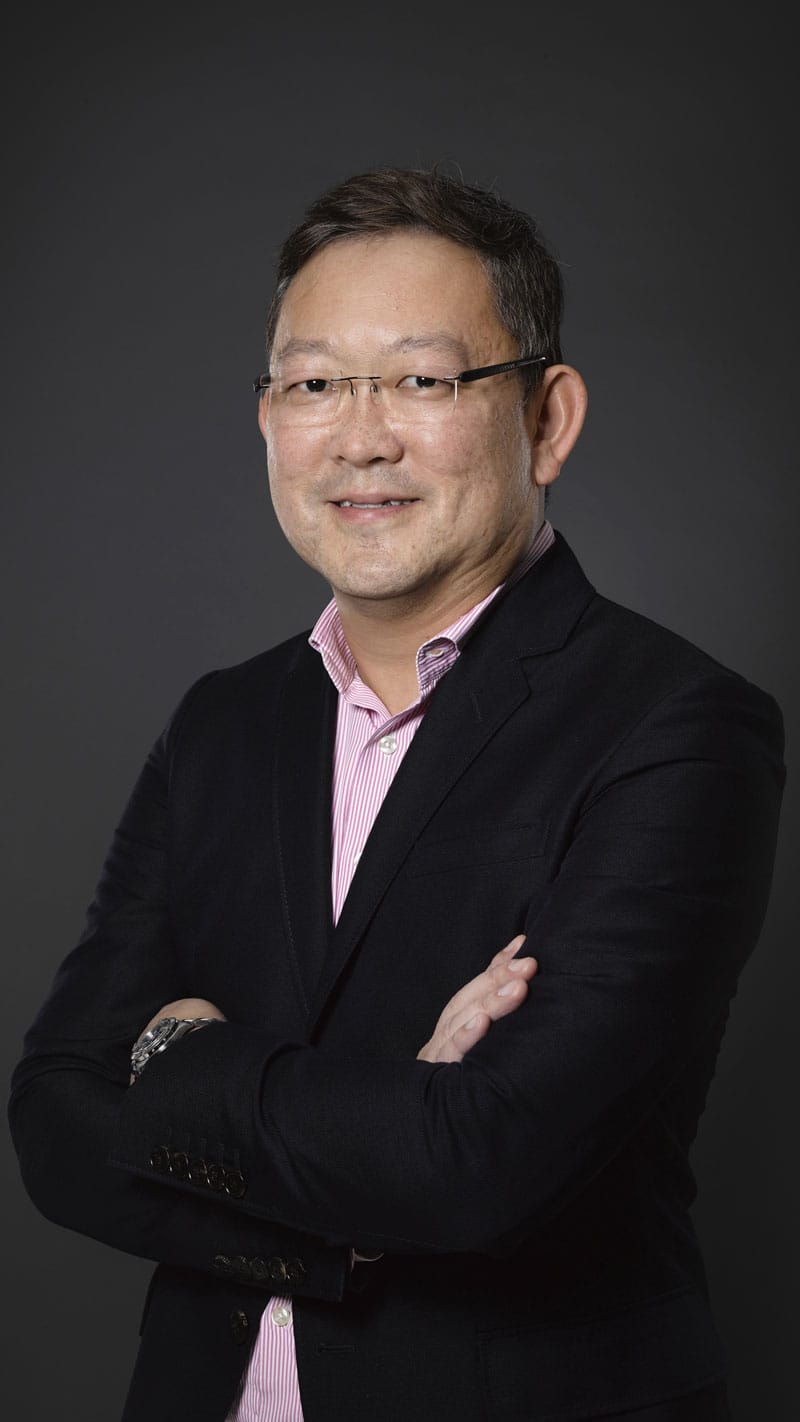
As the world navigates its long-term response to the COVID-19 pandemic, Leslie Chang has a front-row seat as a Shanghai-based executive with the pharmaceutical company GlaxoSmithKline (GSK).
GSK is a major player in the quest for a universally available vaccine, and Chang has a key role positioning the company’s vaccines strategy in the Chinese pharmaceuticals markets.
"When you are manufacturing a medicine that a sick person is relying on, you must be at the top of your game for standards and ethics.”
Chang is chief of staff and strategic projects, China Pharmaceuticals and Vaccines Emerging Markets. The responsibility that comes with the position would be challenging at any time, but doubly so during the pandemic that has shut down entire economies. However, the responsibility rests comfortably on his shoulders, a capability he says was shaped from the moment he began his chemical engineering studies at Monash University 28 years ago.
“Monash was a turning point in my life,” he says.
The bridge of understanding
Chang grew up in Singapore, where education was mostly about memorising rather than understanding, he says. Monash changed that. “At Monash, we were challenged to think. In my first year, the civil engineering professor told the class, ‘build a bridge that can carry my weight’, and he pointed to the materials we could use. To be told by your professor to go and figure something out, to conceptualise with people I didn’t know, was intimidating … and for a while I struggled. I was used to just doing what I was instructed to.”
Over time, his Monash experience changed him profoundly. “I not only fell in love with the University, but also the country. I became an Australian citizen. So my time at Monash was pivotal for me as a young man.” He also met his wife, Audrey, at Monash.
Chang says another unexpected life lesson embedded into the Monash approach was debating concepts and dealing with disagreements. He says it brought into sharp relief the meaning of democracy – “being able to deal with disagreements in a healthy way. And that too was tough for a while, but a great foundation. I appreciated the importance of being able to express myself, and I learned what giving someone ‘a fair go’ really meant.”
For a career that segued from engineering into pharmaceuticals, this became a fundamental ethos: “When you are manufacturing a medicine that a sick person is relying on, you must be at the top of your game for standards and ethics,” he says.
Chang remembers an incident back in Melbourne after returning to Australia following an early career stint in the oil and gas industry. He had secured a job with the pharmaceuticals division of Glaxo Wellcome (which became GSK) and had risen to become head of quality assurance. He had just recalled an asthma product and, suffering a bad cold, went to a pharmacy for medication.
“The pharmacist recognised the name on my Medicare card as the same name on a letter recalling the product. I was sick and just wanted my medicine, but he got really upset with me, telling me how the recall had affected his business and his customers. I apologised and explained that we had to do the right thing, but it was an important reminder of how decisions we make affect people.”
During that time, Chang also renewed his connection with Monash, returning as a volunteer fourth-year career counsellor. “It wasn’t an academic role, but more about career development … what to expect in the workforce. It was nice to be able to observe a younger generation coming up.”
The culture bridge
In 2008, after seven years in Melbourne, GSK Australia offered Chang a posting to Shanghai, where he remains today. It’s been a challenging role, and one that he says his Australian experience prepared him for in ways he could never have predicted. The first eye-opener was leadership in a very different cultural setting.
“In Australia, when you talk to your team, you can say, ‘Guys, let’s figure this out’. They go away, and they’ll try to impress you with the depth of their thinking. The first time I told someone in a factory in China to look into something, I didn’t hear back. After a few days, I asked him what had he found. He said, ‘Nothing – you just asked me to look into it, and I did’.
“You have to go to another level to make sure there is no misunderstanding, because the Chinese workforce will walk over broken glass for you, so you have to make sure you don’t inadvertently ask them to do something careless or irresponsible, because they’re unlikely to challenge you. It is up to you, the leader, and the values that guide you. Again, I go back to the Monash values … excellence, inclusion. They might not be overtly talked about in lectures, but they’re there. As a student you feel it, from the lecturer, to the dean at graduation.”
The bridge of trust
It was these Monash values Chang clung to when the world around him fell apart in 2013-14 as senior company officials were charged with corruption after an internal bribery investigation became public.
“It was frightful. I went from being an engineer looking after factories to a crisis manager. But I learned a lot. I learned how the opaque legal system in China works. I learned how to represent my company in a court and in front of the media.
“It was traumatic, and to get through such a situation, to find resilience, you return to the values that hold you as an individual.”
The experience saw Chang working closely with Chinese and British authorities, given the high-profile nature of the case, and led eventually to his responsibility today for the company’s business operations in China.
“It’s a big job, but it comes down to one fundamental: a medicine that someone will take to get well and feel better. This needs trust, and my job is to build that trust.”
“Universities are without nationality, without ethnic background. They are citizens of the world who know how to come together. So it can’t be governments alone shaping policy or establishing goodwill between countries. It is a role for universities, like Monash, and I hope to be a part of this.”
It’s a sentiment reflected in his world view and his belief that, as the world moves forward, academia should use its position to exercise a more powerful and profound voice: “Universities are without nationality, without ethnic background. They are citizens of the world who know how to come together. So it can’t be governments alone shaping policy or establishing goodwill between countries. It is a role for universities, like Monash, and I hope to be a part of this.”





